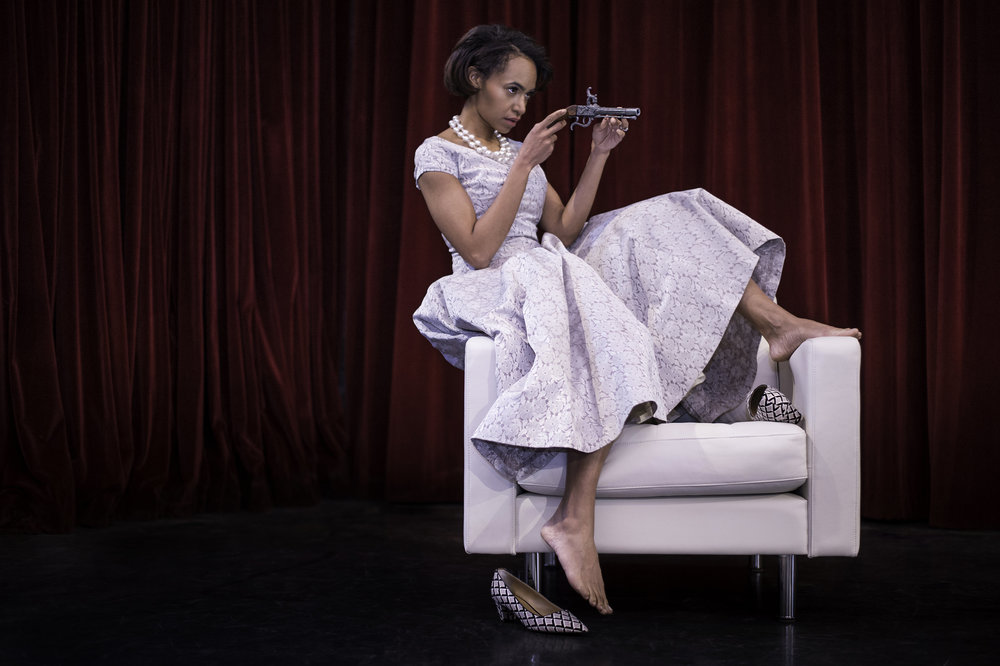Full disclosure: I love this play. It is probably my favourite play, or at least in my top 5 favourite plays. Without hyperbole. This means my experience of it is tinged with an absurd over-drawn understanding of the characters and relationships, and of course coloured by my own experiences playing and understanding Miss Hedda.
That all said, my feeling is that this production was, on the whole, disjointed. Cara Ricketts was outstanding. Her portrayal of Hedda was nuanced and playful; her Hedda was every bit as wicked and as childishly lovable as we expect Hedda to be. Unfortunately, I felt that the other actors, though fine performers, were almost in a different production of the play. While with Hedda, one could see the magnetism of Lovborg, unfortunately in other scenes his work felt flat. Tesman was lovely and charming, but somehow didn't feel at all connected to Hedda. And the choice to de-sexualize Judge Brack left those scenes feeling empty. By time we reach the climax of the play (for in this play, the denouement is so short as to almost not exist) we hardly felt the tension needed to understand Hedda's choices, so that instead of feeling trapped and powerless, we felt she had lost her mind.
I do wonder at the choice of setting the play in the 1950s. Although this modernizes it somewhat compared to the original, our contemporary feeling about the period is still one of snobbish superiority; women can work now, and can leave their husbands without (much) scandal, so look how far we've come? While the 1950s provided an opportunity for beautifully stylish sets and costumes, I do think that the distancing of time enabled the audience to remain distant from this woman and her choices, ultimately limiting our ability to comprehend her final choice. To be truly daring (to borrow Hedda's words) I would love to see a Hedda Gabler set today. Despite how far we have come, there are still considerable pressures on women to marry, and have kids -- except now the pressure is to have a career too! The "Have it all" mentality is today's Hedda, and I think a far more interesting and fruitful place for us to look at her now.
Photo: Cara Ricketts in Hedda Gabler. Photo by Dahlia Katz.
